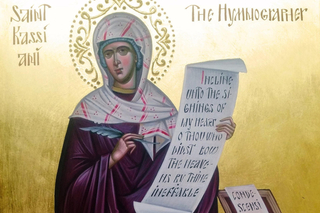Location: Miller Hall
406 Prospect Street
New Haven, CT 06511
Open to: General public
Admission: Free
Description: This daylong panel will be convened by ISM fellow, Dr. Nadia Kizenko.
- 8:00a.m.-4:30 p.m. Workshop in Miller Hall (Tangeman Common Room)
- 4:30p.m.-5:30 p.m. Vespers in Marquand Chapel
Orthodox Christian liturgy seems to be one of the most “traditional” traditions. Its emphasis on ordained clerical authority (limited to able-bodied males) may obscure how others participate—or might participate—in liturgy. Women have shaped the liturgical act of collective remembering and memory making through composing liturgical texts, painting icons, or as witnesses to the events often sacralized through liturgical commemoration. How might reflecting on the embodied, sensorial, and physical experience of liturgy serve as a resource for theologically affirming marginalized groups more holistically?
This workshop looks beneath the surface of Orthodox liturgy. Leading scholars of Orthodox liturgy and liturgical arts, theology, and history, will come together to ask such questions as: whose voices are heard in liturgy, how, and by whom? How are these voices granted value in the event? How do persons attending liturgy contribute? How is their contribution valued, and by whom?
Our re-examination will draw on liturgical rites from antiquity to the present to consider what more inclusive rites might look like. It will conclude with a Vespers sung in Marquand Chapel.
